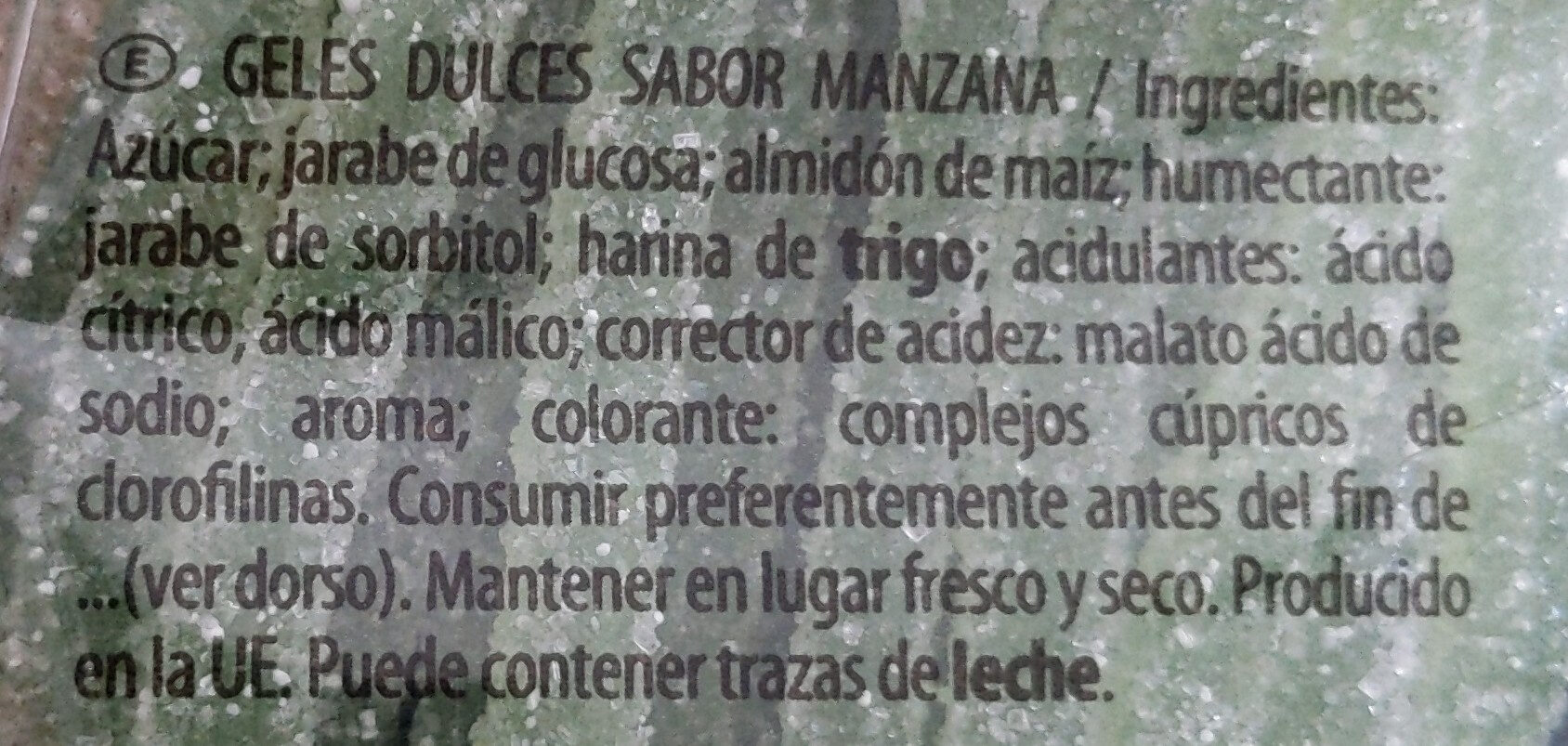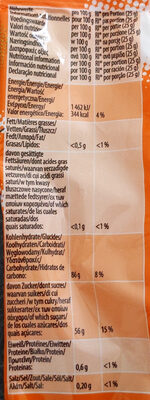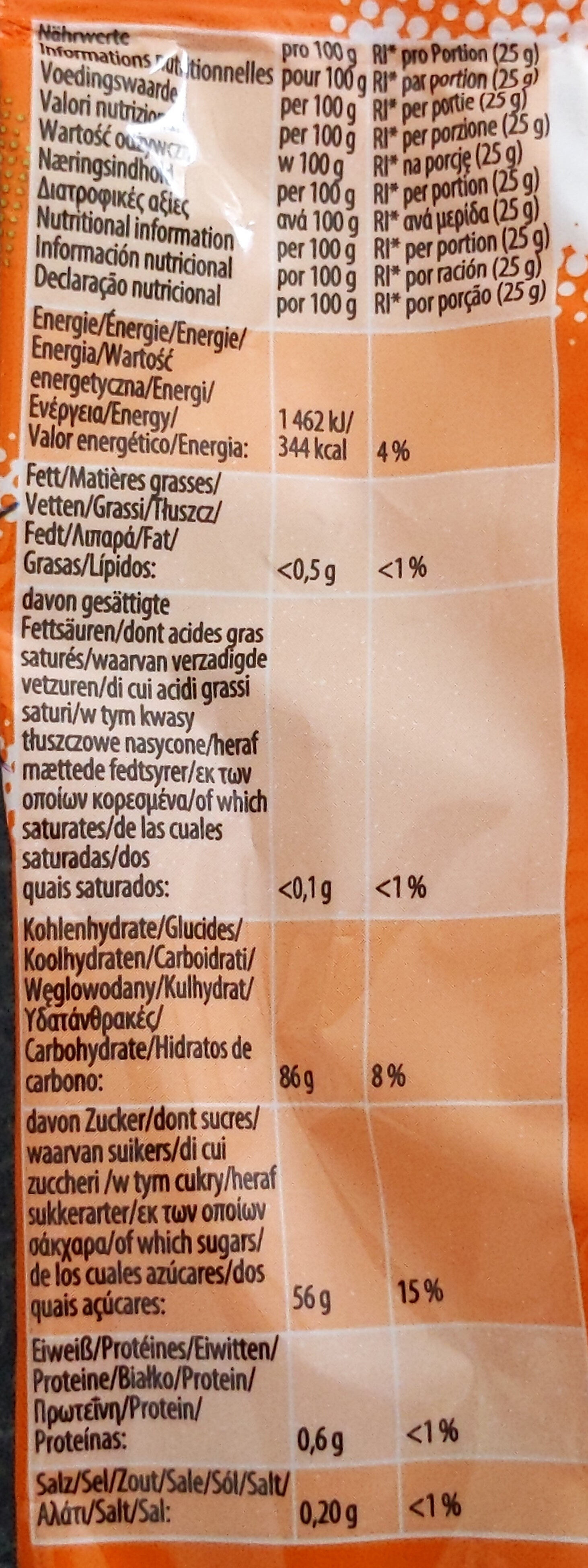Spaghetti Fizz Apple Flavour - Haribo - 200 g
This product page is not complete. You can help to complete it by editing it and adding more data from the photos we have, or by taking more photos using the app for Android or iPhone/iPad. Thank you!
×
Barra-kodea: 4001686359051 (EAN / EAN-13)
Kopurua: 200 g
Ontziratzea: en:Plastic
Markak: Haribo
Kategoriak: en:Snacks, en:Sweet snacks, en:Confectioneries, en:Candies, en:Gummi candies, en:confiseries, en:snacks-sucres
Etiketak, ziurtagiriak, sariak:
en:Vegetarian, en:European Vegetarian Union
Manufacturing or processing places: Unión Europea
Dendak: Spar
Saltzen diren herrialdeak: Espainia, en:deutschland
Matching with your preferences
Report a problem
Datuen iturria
Product added on by kiliweb
Last edit of product page on by vishaldh.
Produktuaren orria -gatik editatua autorotate-bot, date-limite-app, halal-app-chakib, openfoodfacts-contributors, rochus, tacite-mass-editor, teolemon, yuka.ZmZrdFA3c2Z0djh1a2YxdjBFUFpwdnRxNVoyMWUwQzBJdFF4SVE9PQ.












